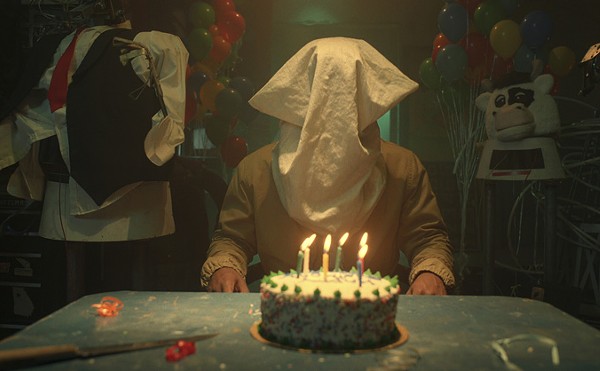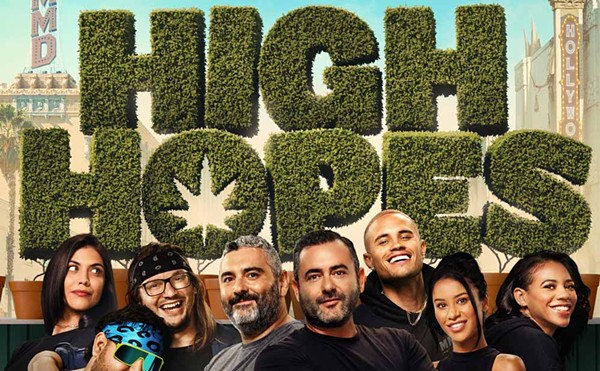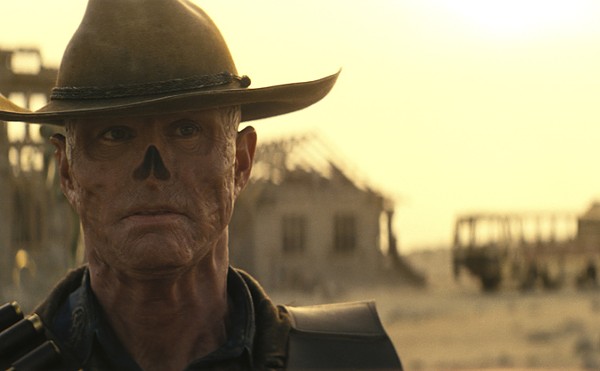Last March, screenwriter Mark Boal's first produced script, The Hurt Locker, beat out eight other writers from four other films for the Best Original Screenplay Oscar. It's no stretch of the imagination to say that Boal beat the Hollywood odds by emerging from a field of legendary previous winners (Quentin Tarantino and the Coen brothers among them), even considering the honored film was adapted from his own high-profile Playboy article.
This week, the submission period closes for another Academy of Motion Picture Arts and Sciences contest, the Don & Gee Nicholl fellowship, with even longer odds against the competitors. From a field of about 6,000 scripts from non-Hollywood writers across the globe, the Oscar-sponsored committee selects the best five screenplays that represent the cream of the amateur crop. Unlike the Oscars, Nicholl fellows don't win Golden Boy status around town or an extra salary bump on their next project — they win more time to keep writing. The grand prize is $30,000, distributed in $6,000 sums throughout the year, so they don't have to work full-time while they write. All that's expected of them is to hand in another feature script when their year is up.
Still, a certain amount of prestige and exposure is inherent for the winners. The Nicholl (pronounced "nickel") prize, now in its 24th year of existence, is considered by far the most prestigious of the hundreds of script contests out there. Its fellows have seen their winning submissions made into multi-million dollar star vehicles (Finding Forrester, Arlington Road), as have a couple of the scripts written during that first fellowship year. Some fellows have gone on to win Pulitzer Prizes or have been nominated for Oscars.
"If you win, there's a pretty good chance that your career will be jump-started," Nicholl fellowship director Greg Beal stated in an interview with absolutewrite.com. "At the least, doors will be opened."
The next couple of years look to be big ones for Nicholl alumni: 1996 fellow Ehren Kruger's screenplay for Transformers 3 (he also wrote last year's sequel, along with the two Ring movies) is slated for summer 2011. 1992 winner Susannah Grant, who wrote Erin Brockovich and last year's The Soloist, follows up in the fall with Kristen Bell's Burlesque. 2007 co-winners Amy Garcia and Cecilia Contreras' entry script never got made, but another of their scripts, Dear Eleanor, has director Garry Marshall (Pretty Woman) and actress Abigail Breslin attached. 1998 fellow Mike Rich will see his high-profile script for Secretariat come to the big screen later this year with Diane Lane, and 2003 fellow Bragi Schut's contest-entry script, Season of the Witch, starring Nicolas Cage, may see a release this year despite its current entanglement in delay hell. Mean Creek writer Jacob Estes, a 1998 fellow, is in post-production on The Details, a Tobey Maguire comedy he wrote and directed.
1991 fellow Raymond De Felitta's film, City Island, starring Andy Garcia, won the Audience Award at last year's Tribeca Film Festival and opens in Orlando this weekend.
All of which paints a picture that the Nicholl fellowship is an instant gateway to Tinseltown success for obscure writers plucked from small towns nationwide. Statistically, however, it's not that easy. Of the 111 winning scripts, 13 (just over 8 percent) have been turned into feature films, and only four of those made over $1 million at the box office. For every critical darling, like the 1989 Nicholl script Traveller (released in 1997 to rave reviews) and 2000 fellowship winner Akeelah and the Bee, there's a Nicholl winner like the 2006 film Land of the Blind, which Variety called "one of the more spectacular misfires of recent years," or 1997's Where the Elephant Sits, which is currently unavailable on any format.
Many of the fellowship grads lack a single credit on IMDB. Of all the past winners, 25 of them went on to receive writing credits on other feature films, an average of about one writer per Nicholl class over the course of the contest's history. (Around five writers or writing teams are selected for each year.)
The other dozens of fellows who didn't see their names on the big screen have turned up in the strangest places. 1998 fellow Donna McNeely became a local news anchor. 1990 winner Wanda Warner became a spokesperson for the airline industry, and one past winner who prefers to remain anonymous says he's working as a video-game designer in the Midwest. 1996 winner Carlton Proctor, the only winner who lived in Florida at the time he was chosen, is currently a staff writer for the Pensacola News Journal.
1995 Nicholl fellow and Winter Park resident Robley Wilson never really had silver screen dreams to begin with. Already an established short story writer and poet who studied under the likes of Kurt Vonnegut by the time he won the contest at age 65, Wilson was awarded the even more illustrious Guggenheim fellowship a decade before his Nicholl triumph. His winning script, Land Fishers, about a housewife who encounters a pair of flooded-home looters, was based on his own critically praised short fiction story of the same name.
"Those who do `make it` stay in L.A.," says Wilson. "You've got to be there. They say 5,000 scripts a day come into L.A."
Wilson attempted a screenplay before — a heavily descriptive, unformatted attempt for a Canadian producer who told Wilson, "What you did in 88 pages, I could do onscreen in eight minutes." Wilson's next go at it came at the behest of Tony Bill, the Oscar-winning producer of The Sting, who was a fan of Wilson's short stories. Bill told him about the Nicholl fellowship in the early '90s.
"I left `his office` and I wrote a spec script," says Wilson. "I sent it to him and he didn't like it. I entered `that script` into Nicholl in 1991 and made the quarterfinals. Then in '95 I submitted `Land Fishers`."
That same year, Wilson's wife, Susan, took a job as a professor at University of Central Florida, which led them to move to Orlando. Shortly thereafter, he received a call from Beal telling him he won the fellowship.
"They flew us out, put us up at the Beverly Hills Hotel and I met a lot of nice people," says Wilson. "Eva Marie Saint, Karl Malden … it was nice. Everybody said to me, ‘Are you going to move to L.A.?' If you win you get a lot of action, a lot of phone calls, a lot of e-mails. I briefly had an agent."
When Land Fishers didn't immediately sell, Wilson's agent dropped him after two months and Wilson resumed writing fiction. His most recent book, 2005's The World Still Melting, was published by St. Martin's Press, which the Washington Post called "a novel of remarkable beauty."
Today, the Nicholl fellowship is still the gold standard for amateur scripters, but its influence has spread everywhere in Hollywood, creating a kind of cottage industry unto itself. The quantity of contests for non-professional writers numbers in the hundreds, enough for the major screenwriting magazines — Creative Screenwriting, Script and Fade In — to occasionally print articles like "How to avoid script contest scams." Just last year, popular Hollywood website The Wrap investigated Fade In's own script contest after allegations of fraud arose.
Legitimate competitions like Creative Screenwriting's AAA contest, Paramount Pictures' Chesterfield Writer's Film Project (currently "on hiatus"), Francis Ford Coppola's American Zoetrope contest and TV fellowships run by Warner Bros., Disney and Nickelodeon have soared in prestige over the years.
Even pros want in on the act: Over the last few years, the "Black List," an unofficial tally of the best un-produced scripts being passed around the studios (voted on mostly by
assistants and readers), has captured the media's attention as if it's an actual competition, even though the writers are sometimes Oscar winners already and most of the named scripts are at least close to being sold. (Past Black List finalists include Inglourious Basterds, box-office bomb Cop Out and The Invention of Lying.)
Through it all, the Nicholl competition remains, churning out a comparatively high number of success stories, especially considering the miniscule chances that unknown screenwriters are up against. (The age-old conundrum — you can't get a script made without an agent; you can't get an agent without getting your script made — lives on to this day.) The Nicholl name association can even open doors beyond Hollywood, years after a writer's initial heat fades. One anonymous past winner credits his seemingly
unrelated post-Nicholl career with winning the competition.
"They weren't going to hire me until they found out I won the Nicholl fellowship," he says. "After that they were saying, ‘Get him on the phone!' `The fellowship` is an opening; you can get into any room for a meeting if you win. As a total unknown, you'd never get those meetings."
"`The Nicholl fellowship` is encouragement," says Wilson of the statistical odds. "I think that's all it's meant to be."
[email protected]















